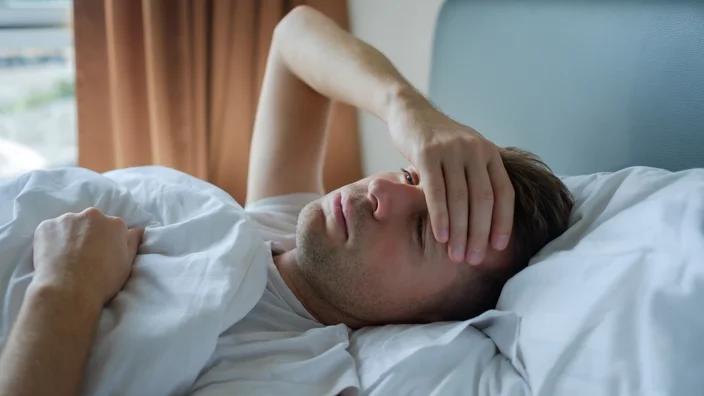Sleep has long fascinated scientists and researchers. Technological advances and an improved understanding of human physiology have made great strides in sleep research in recent years.
The Importance of Sleep
Sleep is integral to our lives and indispensable to our overall well-being. Sleep deprivation has been linked to numerous severe health conditions such as heart disease, diabetes and depression, negatively impacting cognitive functions like attention span, memory impairment and decreased work performance.
Sleep and the Brain
Sleep plays a critical role in brain function. During sleep, the brain processes and consolidates memories, restores and rejuvenates the body, and prepares for the next day’s activities. The lack of quality sleep can hinder these processes, resulting in cognitive decline and increased risk of mental health disorders.
The Science of Sleep
The science behind sleep is intricate and multi-faceted, involving a complex interplay of various physiological processes and neurotransmitters.
The Sleep-Wake Cycle
Our sleep-wake cycle is regulated by two fundamental processes: the circadian rhythm and sleep-wake homeostasis. The circadian rhythm, often called our ‘body clock,’ aligns our sleep patterns with the 24-hour day. On the other hand, sleep-wake homeostasis keeps track of our sleep needs based on how long we’ve been awake.
Sleep Stages
Sleep is not a continuous state but instead involves several stages that alternate throughout the night, from light sleep and deep restful to Rapid Eye Movement sleep (REM) sleep, each step possessing its own set of unique characteristics and functions; deep, relaxing rest helps with physical recovery while dream-filled REM sleep can strengthen memory consolidation and learning processes.
Sleep Disorders and Problems
Sleep disorders and issues can devastate one’s quality of life and overall health, so understanding these conditions is essential for diagnosis and treatment.
Insomnia
Insomnia, which involves difficulty sleeping through the night or remaining asleep for more than four consecutive nights, is one of the most widespread sleep disorders. Prolonged wakefulness can cause various health problems, including cardiovascular diseases, mental health disorders and compromised cognitive function.
Sleep Apnea
Sleep apnea is a potentially severe sleep disorder involving repeated breathing pauses during the night, disrupting standard sleeping patterns and leading to fragmented rest with low oxygen levels, potentially leading to various health conditions, including heart disease, high blood pressure and cognitive dysfunction.
Unravelling Sleep Issues with Sleep Tests
Sleep tests have become an invaluable way of diagnosing sleep disorders and measuring their treatment strategies’ efficacy.
Polysomnography
Polysomnography, commonly called a sleep study, is the most comprehensive test available. It involves monitoring physiological data such as brain waves, eye movements, heart rate and breathing patterns while sleeping. This test can identify many forms of insomnia, including sleep apnea, restless legs syndrome and narcolepsy.
Home Sleep Tests
Home sleep tests have become increasingly popular due to their convenience and cost-efficiency, providing helpful insight into breathing patterns, blood oxygen levels, and heart rates. While home tests cannot replace polysomnography in measuring all parameters that determine sleep quality simultaneously, they can still provide valuable insights – particularly for diagnosing sleep apnea.
The Future of Sleep Science
Sleep science, an ever-evolving field, is experiencing tremendous development. Each day brings discoveries and breakthroughs that propel it toward an exciting future brimming with potential and possibilities. One factor driving this exciting growth and advancement is cutting-edge technologies such as functional magnetic resonance imaging (fMRI) and electroencephalography (EEG), which give researchers unparalleled insight into the brain during sleep stages – offering unprecedented access to complex phenomena such as dream cycles and various roles played by different brain regions during different sleep stages.
Wearable sleep-tracking devices have enabled individuals to take a proactive role in tracking and optimising their sleeping patterns. These portable gadgets provide real-time sleep duration, quality data, and personalised recommendations to enhance overall health. Sleep scientists can leverage these technologies to gather large quantities of data from diverse populations to comprehensively understand sleep-related disorders across demographics.
Personalised Sleep Medicine
Sleep research is increasingly taking an individual-centric approach. Recognising that individuals’ sleeping patterns and needs vary considerably, scientists are exploring tailored interventions based on genetic, physiological, and lifestyle considerations.
The Role of Technology
Wearable tech and smartphone apps have revolutionised sleep tracking, enabling individuals to track their sleeping patterns and gain insights into their health. Artificial intelligence and machine learning advancements should continue refining these tools for more accurate and comprehensive data on managing one’s restful slumber.
Conclusion:
Understanding sleep science and the significance of Resmed sleep tests can improve sleep health and overall wellness. As our knowledge increases about diagnosing and treating sleep disorders increases. Sleep science’s future holds exciting possibilities for more effective, tailored interventions.

